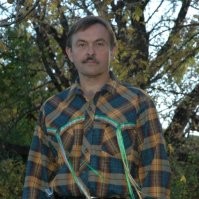
Lewis Mehl-Madrona
- Courses2
- Reviews2
- School: University of Saskatchewan
- Campus:
- Department: Native Studies
- Email address: Join to see
- Phone: Join to see
-
Location:
Saskatoon, SK - Dates at University of Saskatchewan: July 2006 - January 2009
- Office Hours: Join to see
Biography
University of Saskatchewan - Native Studies
Resume
2002
Lewis E
Mehl-Madrona
University of Arizona
Coyote Institute
University of Saskatchewan
Worked with Andrew Weil's Center for Integrative Medicine
University of Arizona
Coyote Institute
Orono
Maine
Coyote Institute's mission is to infuse indigenous wisdom into contemporary health care so as to make it more effective and more humane.
Executive Director
Taught family medicine and psychiatry
University of Saskatchewan
1972
Spanish
French
M.D.
Medicine
Native American Student Association
1969
Bachelor of Arts (B.A.)
Biophysical Chemistry
Research on the acetylcholinesterase receptor
on hippocampal theta rhythm in rats
and on MRI studies.
Indiana University Bloomington
University of Pittsburgh
Medicine
Our mission is to bring the wisdom of traditional
indigenous cultures into the contemporary
mainstream practice of medicine and psychology. We do this through providing workshops that focus on culture as medicine
narrative medicine and psychology
and energy medicine/healing. We consult with aboriginal health groups
both in North American and in Australia
regarding strategies for bringing culture into their health care.
Coyote Institute
Inc
Psychotherapy
Clinical Psychology
Curriculum Development
Group Therapy
Adults
Higher Education
Teaching
Healing
Narrative
Non-profits
Clinical Research
Public Speaking
Treatment
University Teaching
Program Development
Mental Health
Psychology
Community Outreach
Career Counseling
Stress Management
Humanizing Patients Through Narrative Approaches: The Case of Murphy
the “Motor-Mouth”
We present the case of a man who in a State Psychiatric Hospital who has been presented as a hopeless
burned out schizophrenic
unworthy of staff time. Murphy
as he calls himself
turns out to have a rich story
which deepens with every conversation. Through a series of storytellings
Murphy and co-author Michael develop a warm
caring human relationship with therapeutic potential. We offer the perspective that there are no hopeless patients; only clinicians without hope.
Humanizing Patients Through Narrative Approaches: The Case of Murphy
the “Motor-Mouth”
Barbara Mainguy
MA
Aboriginal healers throughout North America associate healing with spiritual forces. We wondered if levels of spiritual transformation are related to the degree of improvement in illness among people who seek healing from traditional healers. In order to answer this question
we conducted a study to determine if we could reliably and validly assess levels of spiritual transformation using a coding rubric that included sample stories from which to draw for making these assessments. In this paper
we report that we are able to reliably rank levels of spiritual transformation on a five point scale.
Mixed Methodology Approaches to Exploring Spiritual Transformation
Michael Omizo
PhD
Among a population of morbidly obese patients awaiting gastric bypass surgery
using multi-level linear modeling
we show that an MMPI profile reliably predicts higher body mass indices
though it still only explains a small portion of the variance. We conclude that factors that can be assessed by the MMPI (Minnesota Multiphasic Personality Inventory) predict a portion of body mass index.
Personality Variance and Obese Body Mass Index
Barbara Mainguy
MA
Having shown in another paper that we can reliably rank levels of spiritual transformation
we ask if the level of spiritual transformation (none
minimum
mild
moderate
profound) was associated with change in medical outcome among people who seek help from traditional aboriginal healers in North America. We found a highly statistically significant correlation between level of spiritual transformation and medical outcome. We propose a cause and effect relationship based upon the spiritual transformation always preceding the change in medical outcome.
Relationships Between Level of Spiritual Transformation and Medical Outcome
I apply narrative ideas drawn from indigenous elders to the practice of psychiatry. I look at the stories in modern society about mind and mental illness and show other stories and perspectives from which to view these same phenomenon. I tell stories about clients and their experiences from these perspectives.
Healing the Mind through the Power of Story: the Promise of Narrative Psychiatry
We are seeking to understand psychosis as a multi-dimensional experience and to work with people in the context that they are undergoing a transformative experience. We aim to use optimal nutrition
exercise
the use of narrative
other psychotherapies
body therapies
and energy medicine as tools in this process.
Barbara Mainguy
